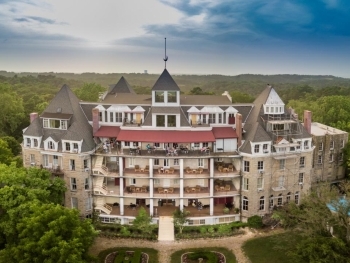The illustrious legacy of Ritz-Carlton finds its roots in the grandeur of European hospitality, stemming from the visionary endeavors of Swiss hotelier César Ritz. Inspired by the opulence of The Carlton in London and The Ritz in Paris and London, César Ritz embarked on a journey to redefine luxury accommodation on both sides of the Atlantic.
In 1911, the Ritz-Carlton Investing Company, spearheaded by Albert Keller, secured the rights to franchise the esteemed Ritz brand in the United States, marking the inception of a hospitality revolution. With a resplendent inauguration, the first Ritz-Carlton Hotel graced Madison Avenue and Forty-Sixth Street in New York, under the management prowess of Theo Kroell and Albert Keller. Their visionary announcement heralded a remarkable affiliation with a constellation of distinguished European counterparts, including the Carlton, Ritz, and Hyde Park Hotels in London, and the iconic Ritz establishments in Paris, Madrid, Berlin, Hamburg, Lucerne, Rome, Naples, Evian les Bains, and Buenos Aires.
Distinguished by its commitment to unparalleled service and affordability, the Ritz-Carlton promised a transcendent guest experience, underscored by meticulous attention to detail. Accommodating the evolving demands of discerning travelers, the hotel introduced pioneering amenities, such as individual bathrooms in each guest room and the utilization of lighter fabrics for enhanced cleanliness. Moreover, the introduction of sophisticated uniforms for staff members and the infusion of fresh flowers throughout public spaces exemplified a dedication to European elegance and refinement.
Under the culinary stewardship of Louis Diat, the Ritz-Carlton kitchens became a bastion of gastronomic innovation, credited with the creation of the beloved vichyssoise. Expanding its footprint in 1911 with the addition of 100 rooms and a grand banquet hall, the hotel epitomized architectural magnificence and hospitality excellence.
In subsequent years, the Ritz-Carlton imprint expanded across prominent American cities, including Philadelphia, Boston, Pittsburgh, Atlantic City, and Boca Raton, each embodying the hallmark traits of luxury and sophistication. However, the onset of World War II precipitated the closure of several establishments, including the iconic New York Ritz-Carlton, which succumbed to redevelopment in 1951.
Despite these challenges, the spirit of Ritz-Carlton endured, culminating in the formation of The Ritz-Carlton Hotel Company, LLC in 1983. Spearheaded by luminaries such as Colgate Holmes and Horst Schulze, the company embarked on a trajectory of exponential growth, with the inauguration of landmark properties across the United States. By the close of 1992, The Ritz-Carlton had amassed an impressive portfolio of 23 luxury hotels, earning acclaim with the prestigious Malcolm Baldrige National Quality Award.
In a transformative move in 1998, The Ritz-Carlton Hotel Company was acquired by Marriott International, propelling its global expansion and reinforcing its commitment to exemplary service. Embracing diverse ventures, from luxury residences to exclusive destination clubs, The Ritz-Carlton continued to redefine luxury living and travel experiences.
In 2008, the company ventured into uncharted territory with the opening of the inaugural Ritz-Carlton Reserve property in Phulay Bay, Krabi, Thailand, offering discerning travelers an unparalleled sanctuary amidst natural splendor.
Today, the legacy of Ritz-Carlton endures as a testament to the enduring pursuit of excellence, seamlessly blending European sophistication with American innovation to create unforgettable moments for guests worldwide.


